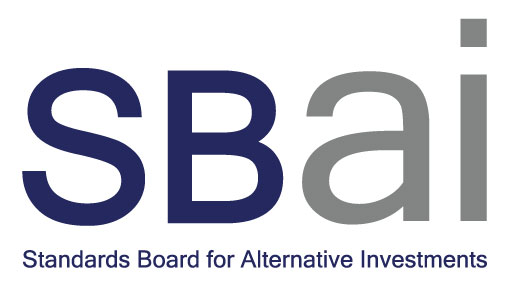SBAI's Initial Assessment of the SEC's Private Fund Adviser Rule
At the Standards Board for Alternative Investments (SBAI), we support regulatory efforts that contribute to fair and efficient markets, reduce systemic risk, and help investors make well-informed decisions.
- Our Alternative Investment Standards provide a framework of good practice that complements regulation and supports many of the regulatory objectives of the Private Fund Adviser Rule in a pragmatic fashion.
- The Standards specifically address key investor concerns in relation to governance, disclosure, valuations, risk management and shareholder conduct.
- They are based on a “comply or explain” mechanism that provides transparency to investors and maintains the correct checks and balances, while providing operational flexibility to managers and institutional investors, thereby facilitating innovation of industry practices.
We had provided feedback to the proposed Private Fund Advisers Rule presented in February 2022 based on feedback from our community of institutional investors and investment managers2. We supported efforts that encourage better disclosure (for example of fees, in line with the SBAI’s Standards and Disclosure Templates3 or the Institutional Limited Partner Association’s (ILPA) private equity fee template) and enable investors to make better informed investment decisions. However, we raised concerns about the unintended consequences that might stem from the prescriptive nature of the rules and we suggested disclosure-based alternatives. Some concerns raised by the SBAI have been addressed, but significant concerns about the prescriptiveness of the rules remain, that could ultimately harm investors through increased (regulatory) cost and less flexible disclosure (“lowest common denominator”).
The alternative investment industry caters to millions of pensioners through public and private pension funds, as well as to other institutional investors, and plays a significant role in allocating capital in the economy and securing future pension payments; hence it is important that the industry operates to a high level of trust and has robust operating standards. We believe that in the years since the global financial crisis, the coming together of asset managers and investors through organisations such as the SBAI as well as through negotiations and due diligence meetings, has achieved significant improvements in practices in the alternative investment industry, including in areas such as fund documentation and terms, governance, adviser operations and overall transparency.
SBAI’s position and what the final rules say
Institutional investors have differing needs and spend significant time and resources negotiating contractual elements with advisers, including commercial terms and transparency based on their own differing preferences, thereby achieving new best practices and better outcomes in the industry. Therefore, our overall recommendation was that investors should retain the freedom to negotiate their required contractual arrangements and other terms, supported by appropriate disclosure.
In our response to the SEC’s request for public input, we raised the following key points alongside responses to the SEC’s specific questions:
Disclosure rather than Prohibition
The SBAI position:
- Focus should lie on disclosure to enable better informed investment decision making.
- The terms of investment are a negotiation between advisers and institutional investors, the SEC should not prohibit or limit elements of this negotiation.
- Prohibition can be a blunt tool and may result in valid processes agreed between investors and advisers no longer being allowed.
The SBAI’s general advice has been followed, such that many prohibited practices now have been “reframed” as restricted, i.e. they are permitted but subject to disclosure and/or investor consent requirements. However, the way some of the disclosure and/or consent frameworks have been structured may be impractical and may act as de facto prohibitions.
Disclosure is at the heart of the SBAI’s Alternative Investment Standards, supporting investors to make well informed investment decisions. In some instances, the Standards require investor consent (material changes to fees/expenses, or investment policy) unless investors have been given sufficient advance notice to redeem prior to the effective date of the changes without penalty.
In relation to certain conflicts of interest, the Standards require additional disclosure of4
- the existence of side letters with material terms, and the nature of such terms,
- the existence of parallel funds, accounts or vehicles using the same or similar investment strategy (including employee and partner funds), and
- material adverse effects that the existence of such other funds, accounts or vehicles may have on investors in the fund.
The SBAI signatories are well positioned to deliver transparency and fair outcomes for investors in a pragmatic fashion.
Grandfathering of Existing Agreements
The SBAI position:
Include a legacy provision to prevent interference with agreements that have been developed in negotiations between investors and advisers, and avoid costly renegotiations.
As per the SBAI’s recommendation, a "legacy" provision has been introduced, preventing the renegotiation and “repapering” of certain elements of LP agreements before the rule takes effect. However, legacy treatment is only afforded with respect to a small subset of the new rules.
Private funds that commenced operations prior to the compliance date would be grandfathered in, and therefore not required to comply with the restrictions that require renewed investor consent. However, this legacy status does not permit a Private Fund Adviser to charge or allocate fees and expenses related to an investigation that results or has resulted in a sanction for a violation of the Advisers Act or the rules thereunder.
The Alternative Investment Standards apply, irrespective of when a fund has been launched. Based on the comply-or-explain framework, managers provide explanations where they do not comply with certain Standards in relation to their activities.
Improving Fund Governance of Private Funds
SBAI position: The SEC has identified “lack of governance mechanisms” in private funds as a key concern but does not address these governance failures. Instead, the SEC aims to function as “the governance mechanism” for private funds through these rules. Better governance would allow more freedom of operations for both advisers and institutional investors, whilst maintaining the correct checks and balances.
We have not seen new ideas to improve the governance structures of funds in the SEC rules. Instead, the focus lies on detailed prescriptive rules in a wide range of areas to cure the symptoms of insufficient governance arrangements.
The Alternative Investment Standards promote strong independent governance arrangements. In those cases where a fund does not have an independent governing body in place to protect investors’ interests, our Standards include an obligation to ask for investor approval before key actions may be taken which may involve a potential conflict of interest between the manager and investors.
Managers who have put in place robust governance arrangements, as set out in our Standards, are well positioned to mitigate conflicts of interest and will achieve superior outcomes for their investors.
Principles versus Rules
SBAI position:
We believe principles-based frameworks, such as our Alternative Investment Standards, are more appropriate to an industry that is diverse in terms of its operations, strategies, asset classes, etc.
While some of the SBAI’s input has been taken on board at a first glance (see “disclosure versus prohibition”), the proposed rules remain very prescriptive.
One specific concern is that investors could receive less disclosure in their due diligence, and managers will become less responsive to bespoke information requests for fear of this being construed as “preferential treatment” with risk of regulatory sanction. This could lead to a “lowest common denominator of disclosure”, reducing investors’ ability to properly scrutinise their investments.
The US regulatory system is often referred to as very “rules” based, but it is important to highlight that the US and the SEC are not strangers to a principles-based regulatory approach5. This raises a more fundamental question of whether the regulatory process in the US and elsewhere should be more cognisant of the entire range of “tools” available to improve outcomes in markets, including Principles, Standards, as well as detailed Rules (see Appendix).
The Alternative Investment Standards provide a well calibrated framework of robust governance and disclosure, driving improvement in practices across a wide range of areas of practice and facilitating well-informed investment decision making by investors.
Conclusion
This rule-making process has certainly laid bare the fundamental question about how much protection institutional investors need. While it might be true that the sophistication level and bargaining power of different institutional investors can vary, as in any other market, it is important to highlight that no institutional investor is required to allocate to private funds, nor are they prohibited to invest in retail products, where they can enjoy much higher levels of investor protection at the expense of freedom to negotiate. We, at the SBAI, believe that for the institutional marketplace, a disclosure-based approach that addresses material conflicts of interest is best positioned to help investors structure the investments they need and make well informed investment decisions. Most importantly, regulation should not hamper those investors undertaking in depth due diligence. In fact, their efforts to detect and work towards addressing short comings benefits all investors.
This rule making process also raises (again) fundamental questions about whether the regulatory process is too narrowly focussed on (seemingly well-intended) detailed rulemaking, which is very costly and raises barriers to entry, ignoring the wider spectrum of tools available to improve outcomes, including Principles and Standards. It is important to remember that asset management, unlike banking, is “project like” in nature: hundreds of new fund managers are launched every year, while underperformers close (without systemic implications!). New entrants to the industry are vital to maintaining a vibrant marketplace, bringing innovation and competition to the industry, and providing more investment choices for allocators. Unnecessarily complex and costly rules therefore risk furthering industry concentration and reducing investors’ bargaining power.
We, at the SBAI, will continue to focus on ongoing exploration of investor concerns, gradual improvement of Standards and practices through our collaborative approach brining investors and managers around the table. While the SBAI’s historic focus has been the open-end fund space, we see more and more interest from closed-end fund managers to commit to the Alternative Investment Standards; our current work on providing practical guidance on the Private Market Valuations will support this development.
We will also continue to explore the details of the SEC rules with our institutional investor and manager communities, to ascertain how our Standards support the desired outcomes, and work with other industry organisations to develop and standardise relevant disclosure templates.
More broadly, we will continue to assess the overall calibration and suitability of asset management regulation globally directly with securities regulators, as well as through our work with the International Organization of Securities Commissions (IOSCO).
Appendix: Principles, Rules, Standards
- Principles are normally expressed at a high level and are likely to be embodied directly or indirectly within the legislation itself. A good example is the set of principles which govern the behaviour of firms regulated by the FCA in the UK. They are widely regarded as a satisfactory articulation of the behaviours that the legislation itself is designed to achieve.
- Rules are at the other end of the spectrum. These are designed to state the precise manner in which firms are expected to conduct themselves and failure to do so will lead to sanction or intervention by supervisors or eventually the courts. By their nature, rules need to be precisely defined in order to create legal certainty. They may be changed as circumstances alter but because rules need to be both precise and relevant to the intended outputs this results in them being voluminous in length and it can take time to change them in response to changing environments, not least due to the requirement for lengthy and often iterative consultation. Consequently, rules work best where there is likely to be limited need for change and where clarity can be achieved without exceptions or complex detail. A good example is in relation to authorization of firms.
- Standards are typically less granular than rules, but generally set out the principles of behaviour required in greater detail than can be achieved in the legislation or the principles themselves. They are specific to particular areas of business such as Hedge Funds or to an area where detailed rules themselves are impossible to draw up in a meaningful way like Governance. Standards are an appropriate way to express required behaviours in fast moving areas of business and to ensure that such principles of behaviour keep pace with the development of that business. They can allow for exceptions whilst still aiming at the same behavioural outcome intended by the legislation and the principles. The alternative would be for overly detailed rules in order to accommodate exceptions etc. But this can lead to complexity, rigidity and to parties circumventing the spirit of the rules by adapting new definitions, technical business models or escaping to jurisdictions where the rules do not apply.
[1] Final Rule: https://www.sec.gov/files/rules/final/2023/ia-6383.pdf (08-2022); Fact Sheet: ia-6383-fact-sheet.pdf (sec.gov)
[2] SBAI Response: https://www.sbai.org/resource/sbai-response-to-sec-proposed-rules-for-private-funds.html ; original proposal: https://www.sec.gov/files/rules/proposed/2022/ia-5955.pdf (02-2022)
[3] SBAI Standard 2.5: https://www.sbai.org/standards.html , SBAI Standard Total Expense Ratio: https://www.sbai.org/toolbox/standard-total-expense-ratio.html
[4]Standard 2.3, 2.4: https://www.sbai.org/resource/sbai-standards.html
[5] Speech by Commissioner Roel C. Campos (2007) https://www.sec.gov/news/speech/2007/spch061407rcc.htm






